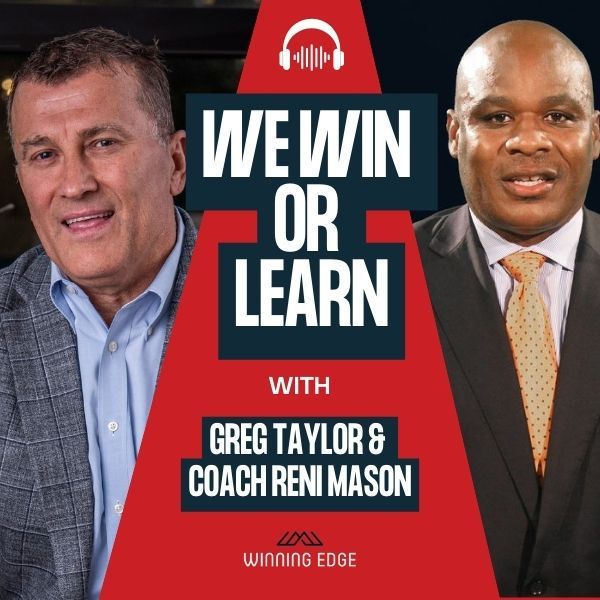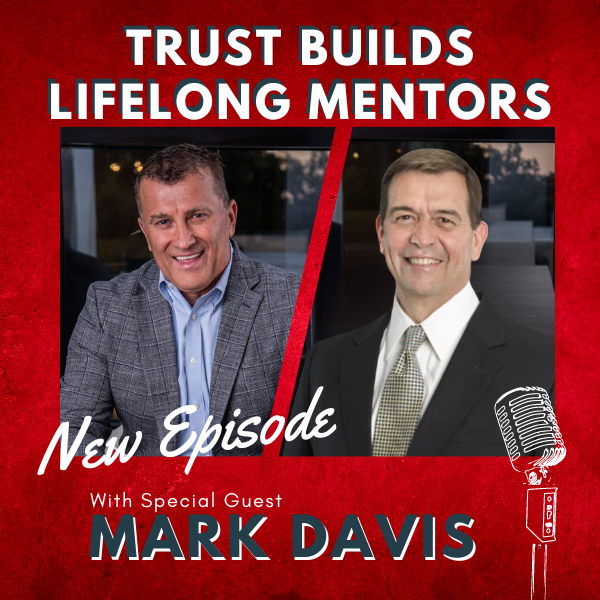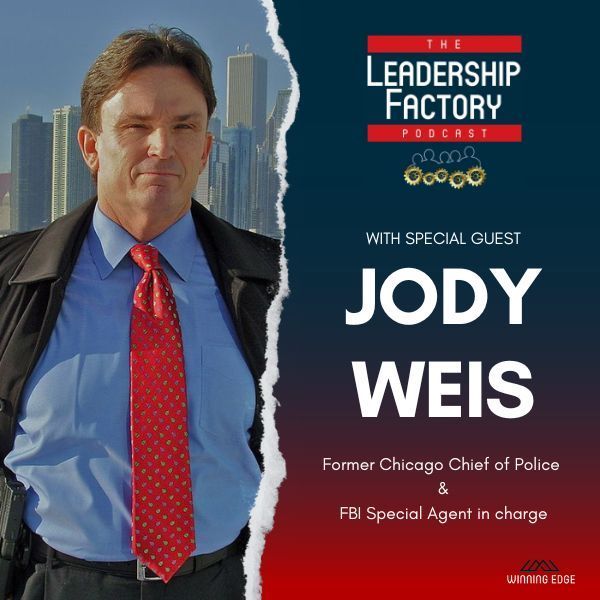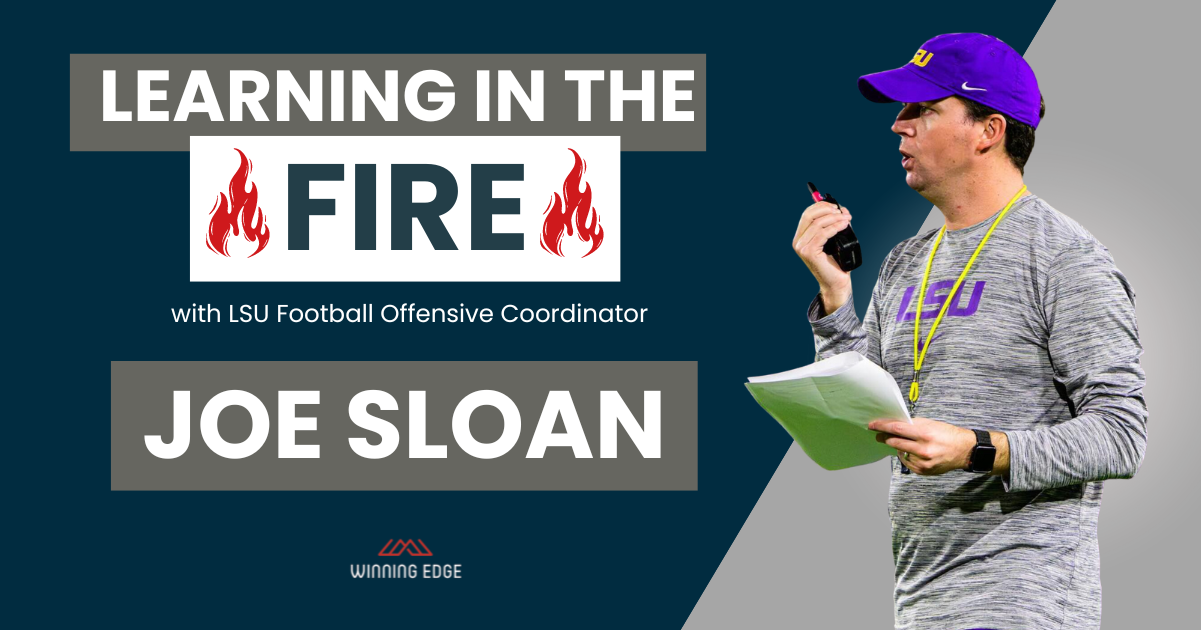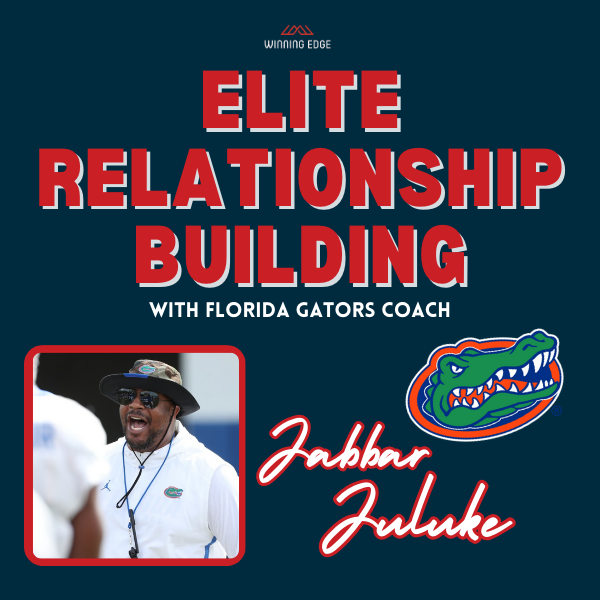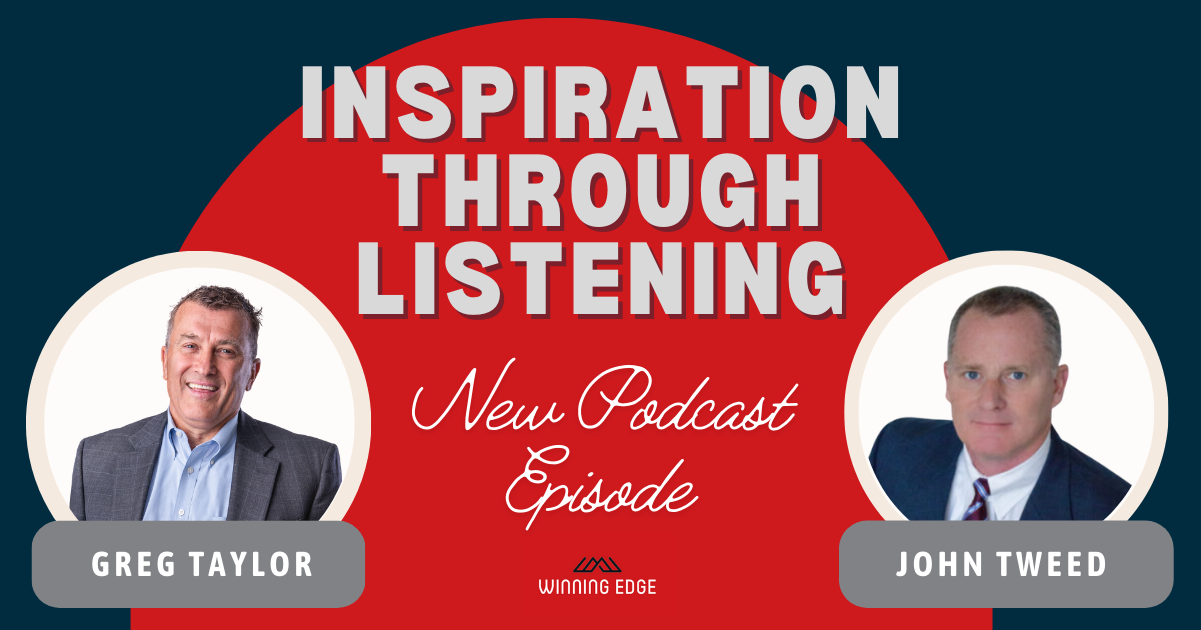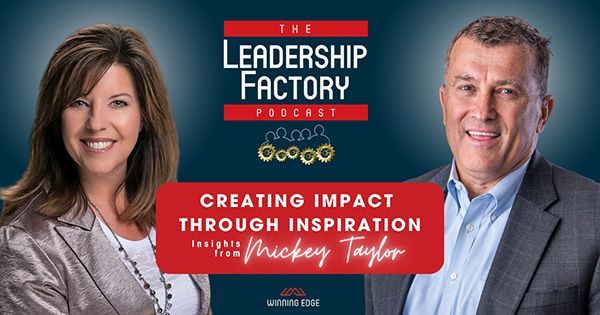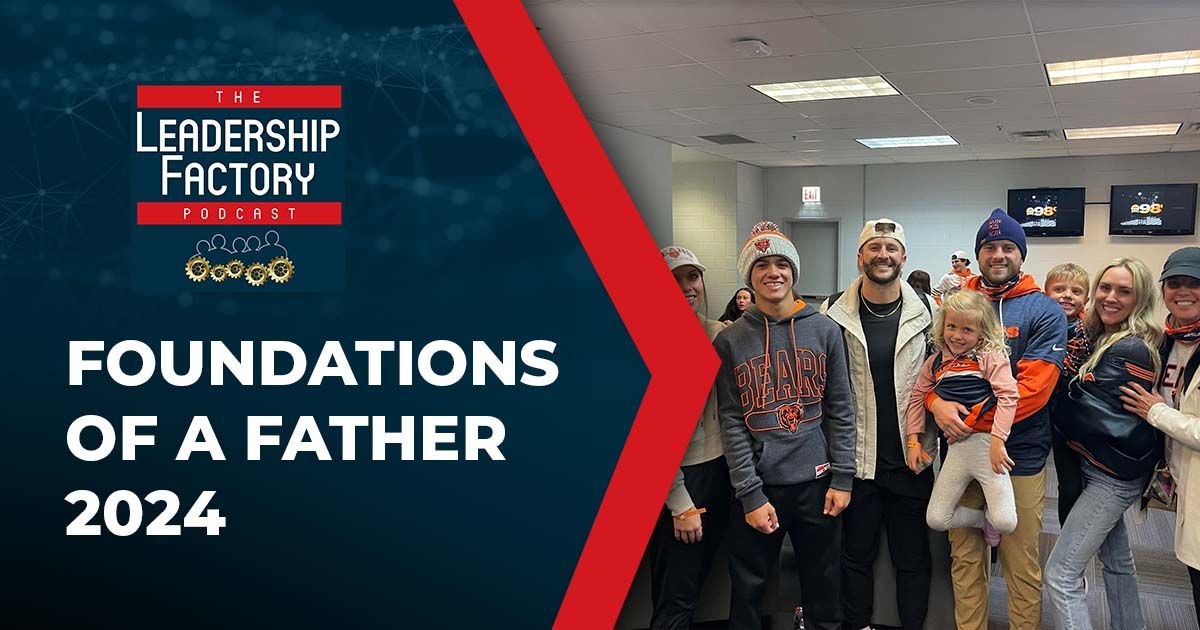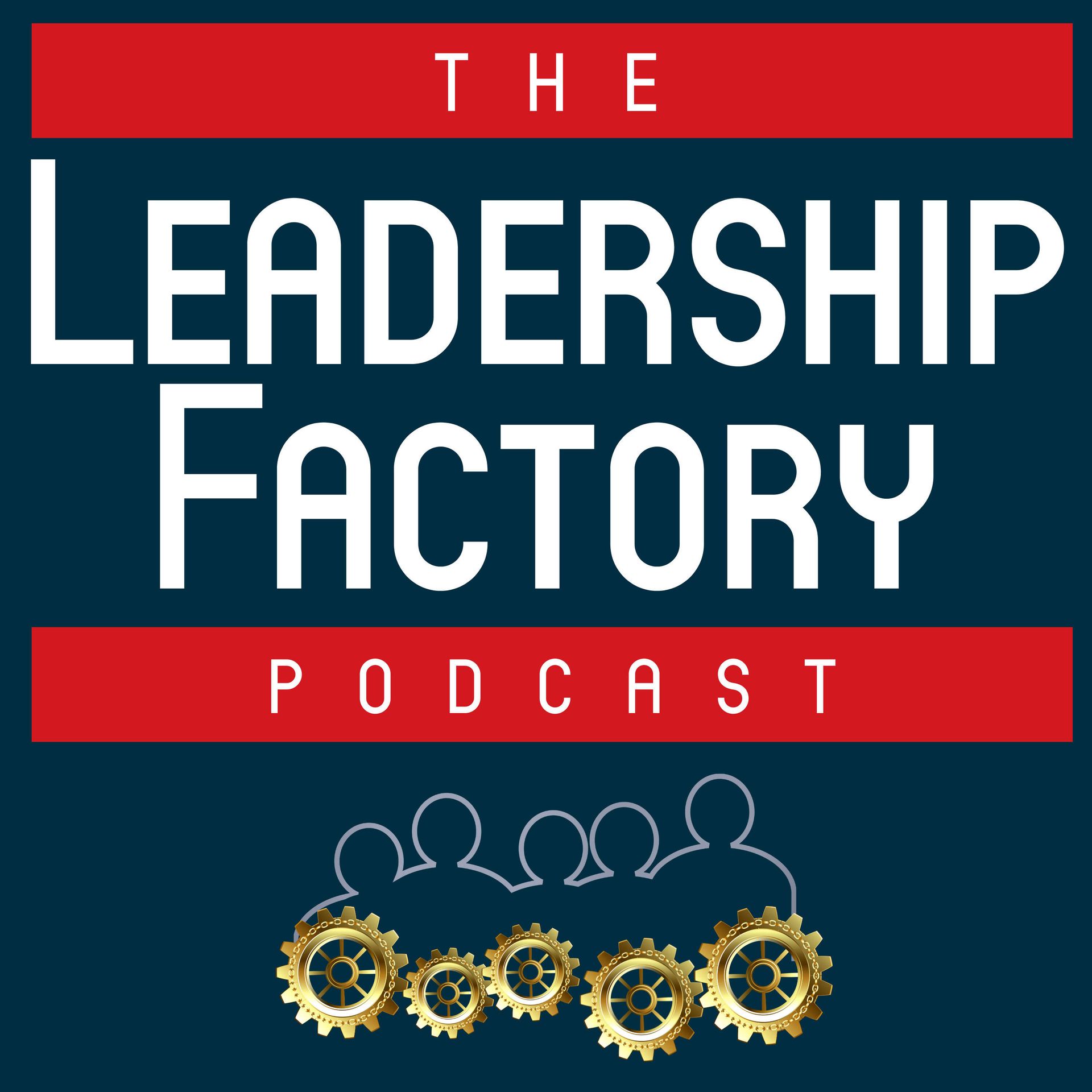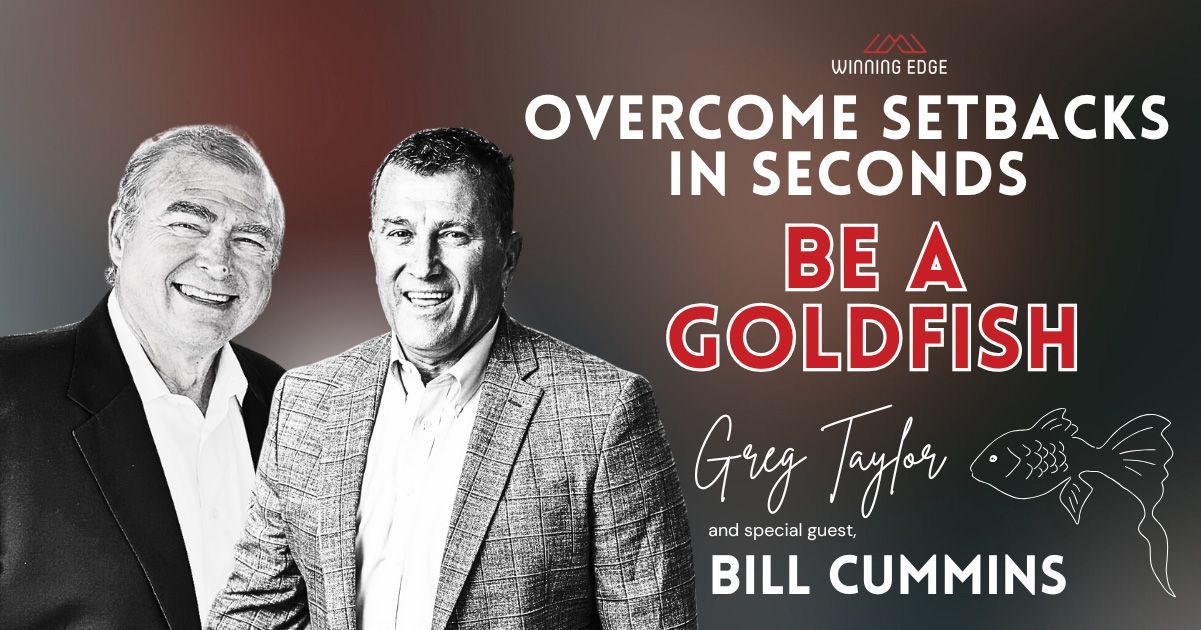
On this episode of the Leadership Factory Podcast, we’re honored to sit down with Bill Cummins—a leader who exemplifies resilience in the face of any setback, purpose, and servant leadership. Bill's impressive career spans 35 years at Texas Instruments and Raytheon, where he mastered roles from product line manager to operations manager, always leading with integrity and innovation.
But Bill’s leadership doesn’t stop at the workplace. As a devoted husband of 41 years, a father to four, and a proud grandfather, his story is grounded in faith, family, and a relentless commitment to growth. From his inspiring lessons on overcoming setbacks to his passion for creating clear expectations, Bill shares wisdom that will resonate with leaders at every level.
So, grab a notebook and get ready to uncover the one domino that could transform your leadership journey. Let’s grow!
---
Listen to the podcast here
Overcome Setbacks In Seconds, Be A Goldfish With Bill Cummins
How are you doing, Mr. Bill Cummins?
I'm doing great. It's another day to wake up and get to be alive and look for opportunities to do things nice for my family.
You were just telling me before we started, how many steps did you walk a day with your three grand babies in Disney World?
We went for four days. The easiest day was 24,000 steps and the last day was 29,000. I did that four days in a row and I feel like a granddaddy.
Was it just you and Lori?
We took both sets of parents, so we had a lot of help.
This episode is going to be between me and Bill Cummins. Bill Cummins was a junior in high school and he won a state championship at our hometown in Kentucky. I was in the seventh grade, and then he was running up his senior year as a senior in high school. To me, I always looked up to Bill because I loved the way he played football. He played it hard. He's just an outstanding student, and he's going to tell you all of these degrees and all the fancy words that he has. He's done very well in business.
Bill’s Education And Career Path
He's a very tenacious person, but he can love you or be tenacious with you at the same time. That's what I love and I’ll honor you, Bill, because you showed me I could do the rough and tough part, but I was not into class going to school and study and doing those other things that you did with excellence. Thank you for being a great leader for me and inspire me to do things I couldn't do by myself. Run us through your education and your jobs, Coach, real quick.
I went to college at the University of Kentucky. When I started, I thought I wanted to be a dentist. I did all the pre-dental work, got accepted to dental school, and the summer before dental school started, I had a research job in chemical engineering. I loved it so much that I decided I was going to be a chemical engineer and not pursue becoming a dentist. It's probably one of the best decisions I’ve made in my life. It was scary and it was hard because it was a huge goal, a huge objective, and you got accepted and then you had to do a lot of prayer and God led me another direction and it was a great direction.
Where'd you land your first job at? You moved from Kentucky to Texas.
I moved from Lexington to Sherman, Texas, to work for Texas Instruments. I started out as a process engineer working with chemicals and wastewater treatment, painting facilities, soldering. If you name it, I did it with chemicals at Texas Instruments.
Tell us about your Master's.
While I was at TI, I was encouraged to go get my Master's. I got a Master's of Science in Engineering Management, which is like an MBA, but in the Engineering college. I enjoyed that so much, I got a Master's in Metallurgical Engineering.
What in the earth is metallurgical?
It's like the study of metals and their properties.
I took chemistry in my last year of high school with Mr. Cobb.
Yes, I remember Mr. Cobb.
That was a sophomore class. I walked into the class, and Mr. Cobb said, “What are you doing here?” I said, “I'm going to go to college, so I'm going to have to take chemistry more than likely. I figured I'd just stop in and say hello to you, see if I could hang out with you for a year.” Mr. Cobb said, “Come on in.” Where else did you work besides Texas Instruments?
I spent 30-some-odd years working with Texas Instruments in various capacities. While we were there, a section of Texas Instruments got sold to Raytheon, so I moved and worked with Raytheon. Still in the same building, same city, same everything, just the product lines that I was supporting were purchased by Raytheon from Texas Instruments.
Alright, everybody who's joining us, I want everybody to understand that at the show, we want you to learn three things that can catapult your inspirational leadership career. At the end, we want you to be able to write one thing. It's the domino effect. What's that one thing that you can conquer that knocks the rest of the dominoes down? Can you write three things down?
Favorite And Worst Leaders
We're going to say a lot of words, but can you find three things that resonates with your mind and your heart that will catapult you forward? What's the one thing, what's that one domino that you can do on a consistent basis that knocks all your other barriers down for you achieving your goals and dreams in your life? As we always start here at the show, Bill, who is your favorite leader and why? Who is your best leader and why?
My favorite leader was a lady named Shauna. Shauna was a dentist’s wife. He left her with young kids. She went back to school and became an engineer. She worked at Texas Instruments as a vice president in multiple roles. She was one of the first female vice presidents in Texas Instruments. She's had multiple consulting gigs. She's on all kinds of boards of directors for businesses, but to some Shana up, I would say servant-based leadership, and tough love, holds you accountable and you'll learn and do more than you ever could have done otherwise without her leadership and direction.
Tell us the story, Coach, where you came to a point where you're like, “I'm overwhelmed,” and where she ignited you with some energy.
I’ll give you that moment. I told this story throughout my career. We were looking at a merger and acquisition process and I was going to be a chief technical officer for an acquisition. I went on vacation and I came back and the deal had fell through. We had reorganized. I had a new boss. I didn't know my new boss, but it certainly wasn't the chief technical officer for a new company. I was disappointed about it and I stewed around about it. I waited about a week to go into her office and talk to her.
I got in there, and before I got the first sentence out of my mouth, as soon as she figured out I was unhappy, she said, “Bill, I expect leaders in my company to deal with change in minutes, not weeks. You had a week of vacation and a week to stew about this and you're still dwelling in the past. In business, we don't have that much time to deal with a setback because it can cost hundreds of thousands of dollars a day. You need to learn how to get through going from shock and anger to moving on and getting on with doing the job that we're paying you to do.” That was a wake-up moment for me.
That's funny. I like her tenacity. That resonated with you, right?
It resonated because it’s a lot like football. You have 30 seconds to play, and you don't do great on every play, but what you can't do is sit around and keep getting beat or worrying about the last play. A lot of things in business you can equate to a sports analogy. That helped me frame it in my mind as, “Next play.” You’re still worrying about last week's session and we've already had a week's worth of plays.
What you can't do is sit around and keep getting beat or keep worrying about the last play.
Have you watched Ted Lasso?
I love Ted Lasso. It's about life.
That's right. He always said, “You got to be a goldfish.” Their memory lasts for only ten seconds. Someone needs to hear that now because I heard don't dwell in the past. You have to pick up your wounds, heal your wounds, and move on. You got to keep growing. If you're trying to be a leader and you're trying to grow, you just have to keep moving. You got to be a goldfish. Have short-term memory, get back to focus, being intentional and being consistent and you'll get to where you want to go in life.
The other thing Shauna did that I thought was better than any other leader I’ve had, I never can remember a discussion where she didn't state my expectations are. There was never a doubt in what her expectations were of you and your team. It was a consistent recurring message. I think a lot of times as leaders, we fail to state the expectations and then hold people accountable for achieving those expectations.
Accountability is a big thing, Coach. I'm going to say people have to be pushed into holding people accountable. That's a deep conversation right there, holding people accountable. You can't make them better, but some people seize accountability as discipline. Accountability is not discipline. Accountability is coaching someone to where you're currently and coaching you to where the expectation is. That's every day. You have to coach them every day to take another step and grow so they can get to the expectation.
It felt to me like she was removing every barrier and every excuse that I could possibly come up with for why I couldn't do what she needed me to do.
Coach, I would say you all were a great team. That's all I have to say.
She's awesome. I admire her more than any other person I’ve got to work with.
Who is your worst leader and why? No names need to be called out, but who's your worst leader and why?
First thing, your worst leader is who you can learn the most about improving. You have to have the attitude of if you're stuck and you got somebody that really is a bad leader, you got to start jotting down all the things they're doing and how it made you feel and what you could do differently because one day, you're going to be a leader and you don't want to be that leader. You want to be the other leader. My very first leader out of college, he was very demotivated. He was like we were there to make him look good and he would take credit for our work. Instead of creating opportunities and giving us opportunities to have different assignments and show what we can do, he was always busy taking the credit for the team instead of the team taking credit for him.

Advice For Struggling Leaders
What would be your advice if someone's reading to that and they're struggling with that as a leader? What would advice would you give to them? If they're doing that as a leader, how do they shift from being an encourager? What's your advice to people who are reading right now?
I think what I want is I want to have a relationship of trust. I want to know as an employee when they tell me they're going to do something, they're going to do what they said they were going to do. Likewise, I think they need that out of you. That you need to be able to make and keep a commitment and do what you said you would do when you said you would do it, and the second you know you can't do it, you got to go back to that boss and say, “This is not working out.”
I used to not want to go do that because I was worried I'd get a spanking. In reality, the sooner you tell them about a problem, the higher the probability they're going to be able to take some action to address the problem. If you think of it this way, you just let the clock keep running. The game got shorter and we still haven't started trying to fix the problem.
I ordered a book, Do Something! It's by Miles McPherson. He played in the NFL. He got out of the NFL and he got hooked up on drugs. I haven't read it to know what it means, but I love the title. Do Something! It is like what Coach Powers told me in high school football. He brought me down as a sophomore from the freshman team as a varsity player. I got lost in the shuffle.
He came up to me and he said, “I didn't bring you down here to think I brought you down here to run and hit people. If you want to think, go back down there and think. I brought you up here to run and hit people. Don't think. Do something.” That is somebody's domino. Go do something. Go make a play. Go gamble. Life's a gamble. Just gamble. Take calculated gambles not just crazy gambles like jumping off a bridge or jumping off trains. Take a calculated gamble in the world of business and you'll prosper. What if you bust your knee? Get up, dust it off and keep moving.
I think I read somewhere that the biggest change in a product line is between the first time you build it and the second time. Your biggest cycle of learning and the biggest opportunity for improvement is when you fail the first time and then you have to do it a second time.
Unsung Hero
Who's your unsung hero?
It's going to sound cliché, but my parents. They balanced each other. One discipline and hard work and the other supportive and get back in there, you can do it.
Who was your disciplinarian?
My dad. He grew up on a farm, so he believed in hard work. My mom was a musician and made straight As all the way through college, so she was more cerebral. I got a little bit of both of them.
Where'd your dad grow up at it?
He grew up in a farm in Shelbyville, Kentucky.
Where's your mom from?
Harlan, Kentucky.
I didn't know that. That's where I was born, in Harlan, Kentucky. I lived in a coal mine camp until I was like three years old. We won't get into that. It's not a bad concept, but we won't get into that discussion. When you say unsung hero, Bill, what does that mean to you?
That probably means I didn't do a good enough job of singing about them. A lot of times in society, we go recognize big accomplishments, but sometimes just showing up every day and doing it right day after day is a big accomplishment. We don't tend to recognize and reward people who are consistent.
Sometimes, just showing up every day and doing it right is a big accomplishment. We don’t tend to recognize and reward consistent people.
Being consistent is not fabulous. It's not going to be put on social media, but it'll get you to where you want to go. If you're consistently getting better one step a day, at the end of the year through, you’re 365 steps ahead. You didn't talk about it. You focused on it. You became intentional and you were consistent. Now you're 365. If you do that another year and you just keep doing that consistency thing, it's amazing, but it's not glamorous.
One of our vice presidents came in one day and we had about 200 engineers in the audience and he put a graph of his career on the board and it showed his pay for every year and his job grades and his assignments for his 25-year career. He put a dot for every one of the 200 engineers in the room. Every single one of those people in that room were doing better than he was.
His whole message was, you don't become great overnight. Overnight successes, in his experience, was about 15 to 20 years. We were so into wanting to get immediate gratification and not put in the learning and the failures you need to experience to we want to win the game on the first play, first day. Sometimes, it takes 15 or 20 years to develop that competency.
Overcoming Adversity
Alright, Coach. Let's talk about your current situation. Tell us what's going on in your life right now.
I'm going to back up just a little. Years ago, my mother and father's health started declining really bad. I had to relocate them and become a full-time caregiver. My dad passed and my mom's health was failing. We had her in the ER. I'm driving her home from the ER and I run into the curb on four successive left turns. We got back to the house, missed the chair, couldn't sit down in the chair, and all of a sudden, the light went off. I'm like, “You're having a stroke. You can't stand up. You can't walk.” We go to the hospital and we actually found out I had two brain tumors. That was a couple months in the hospital after surgery, and now I'm going through chemo. I’m just being grateful to be alive and getting to do all things I get to do every day.
How do you muster up the spirit? This is the spirit of number 63 for the Corbin Red Hounds. In the midst of adversity, Coach, you did 29,000 steps. When some people go through tough times, they'll just quit. Why don't you quit? Why don't you give up and say, “Poor old, pitiful me?”
My entire adult life, I’ve always had a manager tell me this, and he was like, “You can't take care of your job, your wife, or your kids if you're not taking care of yourself.” I’ve always tried to focus on exercising, staying fit both mentally, spiritually, and physically. If you ignore any one of them, it's not going to be sustainable. I feel like to be the father and husband my family deserves, I got to keep living every day. You got to be an example. I’ve said this so many times to my kids, “If you aren’t moving, you're dying.” The day you stop moving, you're dying. You started dying. That's just my attitude.

It sounds like a COO I had back in my first job. If you're not growing, you're dying. You just got to keep living. That's why I love talking to you, Coach. I love your story and everybody in Corbin, Kentucky loves you. You're just number 63 out there, trying to fill a gap and make a play. We were talking one time, “You just got to keep playing until the whistle blows.” Is that what you were taught, playing football?
I’ll quit working hard when I'm in heaven.
I think we might have to work there too, Coach. I'm just thinking out loud. I'm not a theologian, but I think it's going to be work because there's some fulfillment when you find your purpose in life and it's attached to work. I always tell people, “Stress isn't the problem. It's the lack of purpose that's the problem.” If I'm connected to my purpose and I'm doing my purpose every day, my stress levels go down. It doesn't go away.. It will just come down.
My gain is bigger than my pain. I'm going to keep going because if it shifts, my pain gets bigger than my gain, which is my purpose, I'm not going to be doing that. I think to me. I'm thinking for you. That's the dangerous thing to do. My wife's on my shoulder right now, “Shut up.” It’s like you're just living life. This is what I do. You play until the whistle blows, meaning you don't stop until the song's over. Just keep singing, Coach.
Encouraging Others
What would be your advice for friends? I know a lot of your friends. What would you tell someone to do if you knew someone that had cancer, your friend or a family member, to keep them encouraged? I'm asking you to become a friend, but understand your situation. How do they connect? A lot of people get scared, I'm one of those, but I’ll do something instead of sitting and do nothing. How would you want to be encouraged or how would you encourage someone with cancer?
The first thing I would say is you get to choose your attitude. There's a lot of data that supports the more positive you feel about the situation and the more you visualize a different path, the higher the probability of you achieving that. I just keep telling myself every day, “You must keep going. You want to live. You've got all these things you still want to do with your family and friends and you want to continue to be a living example of God's miracle.” I'm a miracle. Every day I wake up, that's another miracle. The more people I tell about it, the more people I can influence.
You get to choose your attitude. The more positive you feel about the situation, and the more you visualize a different path, the higher the probability of you achieving it.
That's why you're on here, Coach, to influence people. In your life, how do you take another step, Coach, when you get stuck? What's your go-to when you get stuck?
I’ve learned to manage. There's a lot of anxiety when you got cancer. I’ve learned to focus on breathing, prayer and meditation to cha change how the world looks through using my mind.
What is the biggest, “I'm so glad I took that risk,” of your life?
I don't think I took the risk. I think my wife did, but that turned out to be the best decision of my life.
With Ms. Lori? Is she listening to you right now, Coach, so you can get some brownie points?
No, she's not, but she knows how I stand on the subject.
Is your wife was an engineer as well?
She's a vice president of engineering in an engineering firm.
How many kids do you have?
I have four kids. Three daughters and a son. And that was a blessing, too. I think if my son had become first, I would've been a terrible dad to him. You can't make linebackers out of your daughters as easy. I learned that my job was to help them achieve their goals, not mine. I would've never been able to do that with a son if he was my firstborn. I wouldn't have been mature enough to deal with that.
There's a lesson for someone. That's a lesson I learned in probably my low 30s, high 30s. It's my child's life, not my life. I came out of the gate. I'm trying to help them pursue my dream instead of help them pursue their dream. My wife and good counselors and my transformation helped me understand my job as a leader, as a parent, is to help them find their goals and dreams. How can I find the uniqueness in each person so I can speak life to it and help it grow into what they want to do?
Finding Mentors
In the first company I worked at, they applauded people who left to go chase a dream where 99% of the companies frowned upon that. They get mad at you because you're chasing a dream. To me, my first company I worked at was Averitt Express. They were like my second family. They applauded me when I left because I wanted to move back to Corbin to be around family and a lot of other circumstances. If I just wanted a job living in Cookville, Tennessee, that's the greatest place to work for me, but I have an entrepreneurial edge. I wanted go figure it out on my own so they patted me on the back and they're still my mentors to this day. What would you tell somebody about finding mentors, Coach?
I would tell them it's their job and nobody else's, and they need to have at least three mentors. They need to know each mentor has their own unique set of skills and kinds of experiences that they can help you with. I look at a problem and I'm like, “Which one of my mentors is probably the best qualified to help me get through this?” You’ve got to own identifying them and how to use them. It needs to be something that you're actively pursuing and grooming. Mentoring is a two-way street. A lot of people think they're there to make you better. Every person I’ve mentored made me a better person as well. You learn from every one of them.

Winning Edge
When you engage someone in deep conversation and trying to pull out the best of one another, you're going to grow from that experience. That's beautiful. What's your winning edge, Coach? What's your special sauce in life? What is your special sauce or winning edge to be a successful football player, captain of your team, great student, great education, and Master's in your engineering trade? Beautiful wife, beautiful kids, great career. What gives you the ability to do all that?
I’ve always believed, and I'm going to quote someone, I can't remember who said it, but hard work beats talent when talent doesn't work hard. You don't have to be the smartest. You just have to be willing to stick with it and work longer and harder. It's not always that longer and harder, but there's a lot of sweat equity in just about every success.
You said a keyword that I want to pull out for someone. Someone needs to hear that. Stick to it. You got to stick to it. Literally, you’ve got to stick to it. If this is my goal and this is my dream in life, I’ve just got to stick to it. When it's rain, sleet and hailing, everybody's against me, I'm not being treated fair, you got to stick to what your goal and mission is. Coach, close this out here. I'm going to let you close this out. Everybody's written three things down. Now we're trying to figure out what that one domino effect is that impacts their life. How would you close this up, Coach? Close this out here.
I think I would start off with you have to formulate a vision of a desired future state. You got to keep telling yourself you can do it, but don't underestimate the power of a positive attitude. You get to choose that every single day. That's the only thing we can choose. Life is going to throw us all kinds of curves. It's how we choose to react to that's going to be our measure success.
You have to formulate a vision of a desired future state. Keep telling yourself you can do it. You don’t underestimate the power of a positive attitude.
Coach, that's a great closing to this episode. Mr. Bill Cummins, I appreciate you. I'm just praying for a complete healing and restoration in the name of Jesus. I appreciate your time. We’ve been trying to hook up for over a month, so I think it's worth everybody. I hope everybody took some great notes. There are just a ton of nuggets that came out of this. I encourage everybody else to hook up to us. Thank you for watching. Thank you for taking notes. Thank you for engaging and go out and make your play. As we always say at the show, let's grow. Tell them, “Let's grow,” Coach.
Let's grow.
Thank you, Mr. Bill. Thank you, everybody.

